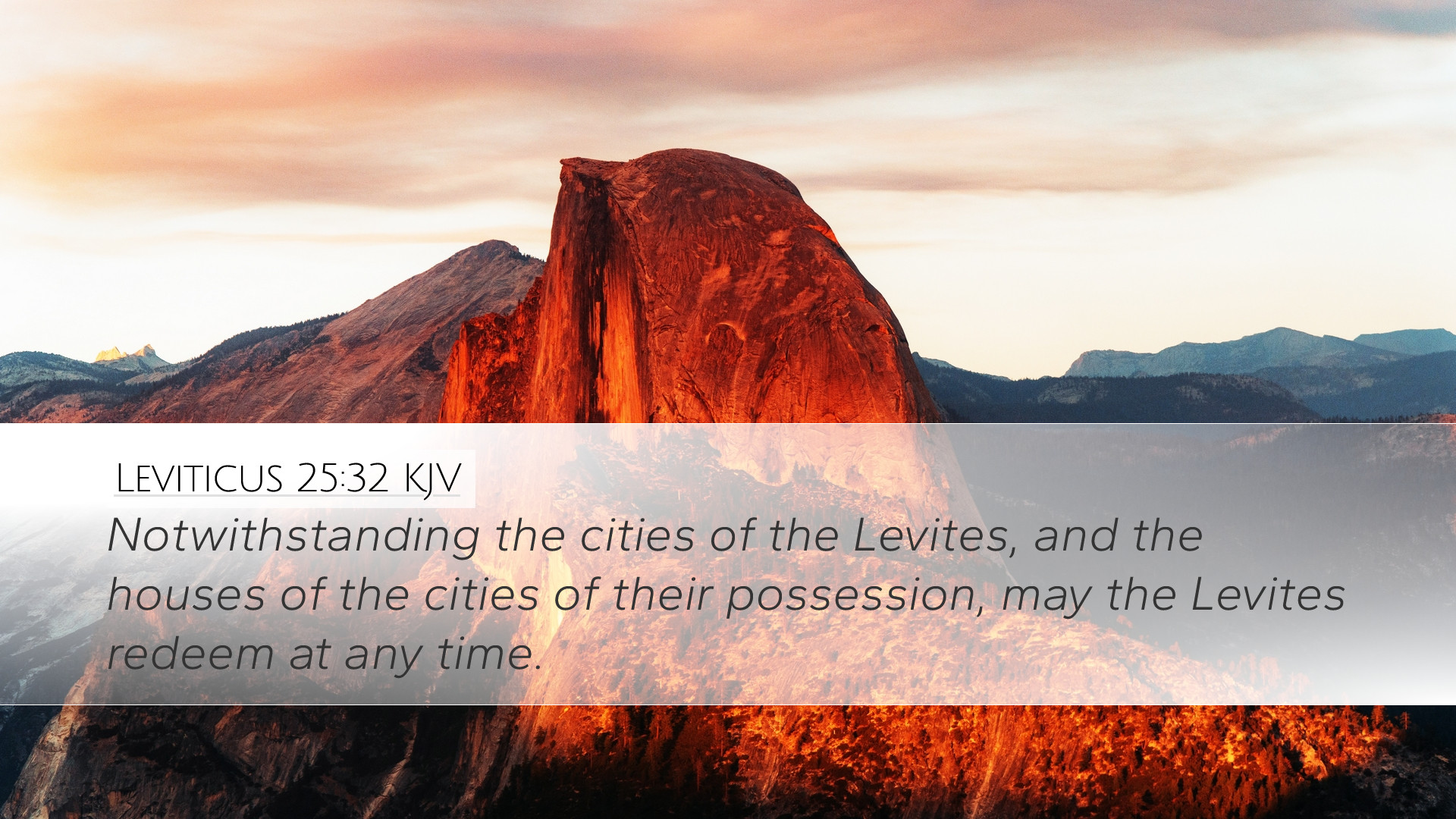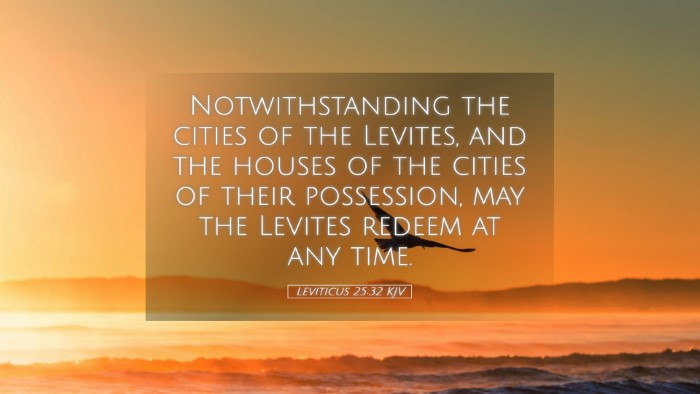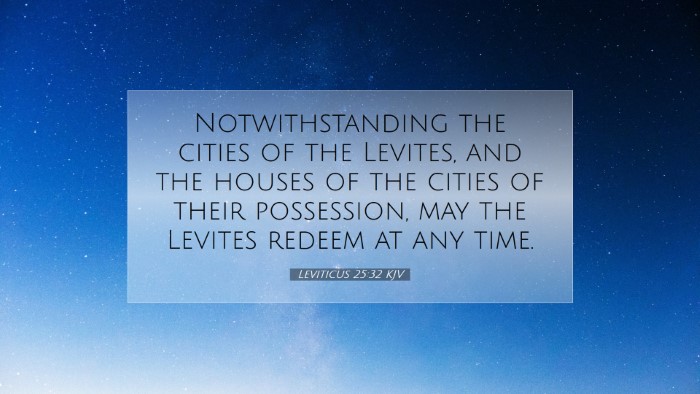Commentary on Leviticus 25:32
Leviticus 25:32 states, “Notwithstanding the cities of the Levites, and the houses of the cities of their possession, may the Levites redeem at any time.” This verse plays a crucial role in understanding the rights and privileges of the Levitical priesthood within Israelite society. Here we draw upon insights from several public domain commentaries to unfold the richness of this scripture.
Contextual Background
The background of this verse is set within the framework of the Jubilee laws, which were designed to ensure social equity and economic justice within the ancient Israelite community. The Levites, as the priestly tribe, had a distinct role, and their privileges were intricately woven into the fabric of both the Tabernacle worship and the agricultural life of Israel.
The Role of the Levites
According to Albert Barnes, the Levites were given cities and pastures but were prohibited from owning land like other tribes. Their sustenance came from the tithes and offerings brought by the people. This ensured the continuity of their ministry while the community was reminded of God's provision through their appointed leaders.
Redemption Rights
This verse emphasizes the redeeming rights of the Levites. Adam Clarke elaborates that unlike other inhabitants who had specific restrictions on redeeming their property, Levites had the unique privilege of redeeming their cities and houses at any time. This is significant as it highlights the grace and mercy of God in providing for those assigned to spiritual leadership.
Theological Implications
Leviticus 25:32 brings forth critical theological themes regarding redemption—both social and spiritual. Matthew Henry notes that this arrangement symbolizes the divine order where spiritual leaders are sustained and upheld by their community. The Levites’ right to redeem aligns with God's overarching plan to maintain a community rooted in worship and obedience.
Social Justice
This text serves as a reminder of God’s concern for social equity. The provision for Levites illustrates a model where no group is left destitute. This is a precursor to the New Testament understanding where all believers are considered part of the priesthood (1 Peter 2:9). Thus, they have the responsibility to care for one another, especially those who are in ministerial roles.
God’s Faithfulness
One can see the principle of God’s faithfulness depicted in this verse. The right of the Levites to redeem homes signifies that God's covenant promises extend beyond mere land ownership; they are about providing for His people according to His will and design. As Barnes points out, this speaks to the enduring nature of God’s promises—assuring the Levites of their ongoing place in His economy.
Practical Applications
For pastors and church leaders today, understanding Leviticus 25:32 prompts several practical applications:
- Support of Ministry: Just as the Levites were dependent on their community, modern church leaders also rely on the support of their congregations. It is essential to foster a spirit of generosity and stewardship.
- Empowerment to Redeem: The right of the Levites to redeem at any time encourages today’s leaders to exercise their spiritual authority and advocate for those in need, ensuring that church members are supported during challenging times.
- Social Responsibility: This text calls the church to address issues of social justice and equity, reminding congregations that taking care of the vulnerable is a significant aspect of Christian discipleship.
Conclusion
Leviticus 25:32 is more than a legal statute; it is a profound statement about God's governance and care for His people. By examining this verse alongside insights from esteemed commentators, we uncover layers of meaning relevant to both past practices and contemporary Christian life. The Levites' unique standing reminds us to uphold those who serve in the ministry and to continually seek God’s order in our communities.


